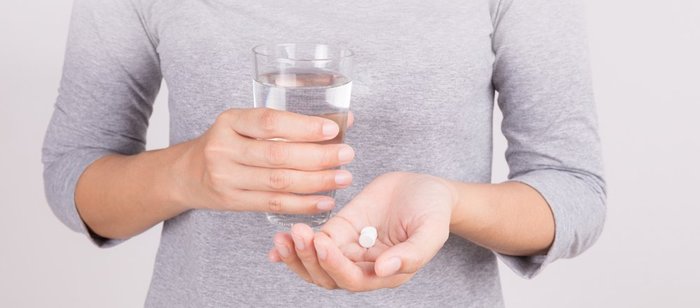If you have kidney disease, or have had a kidney transplant, there are sometimes problems with buying medicines over the counter (from pharmacies, supermarkets or garages) to treat minor ailments.
This resource aims to give you more information about the medicines that may cause problems. For more information, ask your doctor or pharmacist.
What types of medicines could cause problems?
You may have a number of medical conditions and are therefore prescribed several medicines from your doctor.
As a result, some of the medicines that can be bought over the counter from pharmacies and other shops may be unsuitable for you. This can include tablets, capsules, liquids, inhalers or creams that either your doctor prescribes you, or that you buy yourself.
What could happen if I take them?
- They may cause problems with other medicines you take.
- Some may make your kidney function worse.
- Some products contain things that are bad for you, like potassium, sodium or aluminium.
How do I know which medicines are safe for me to use?
Talk to your doctor or pharmacist to make sure that you buy suitable medicines to treat minor ailments.
| Type of pain | Avoid | Suitable alternative | Additional comments |
|---|---|---|---|
Headache |
Ibuprofen, aspirin and all effervescent products |
Paracetamol |
See your doctor if symptoms do not improve |
Colds and coughs |
Any medicines containing a decongestant – especially if you take tablets for high blood pressure, aspirin or ibuprofen |
Paracetamol for aches and pains. Try simple linctus to soothe coughs and sore throats - ask for sugar free products if you are diabetic |
Try a menthol or steam inhalation to clear any congestion |
Muscle aches |
Tablets or creams containing ibuprofen or similar medicines |
Deep Heat® or Ralgex® |
None |
Indigestion |
Avoid any preparations containing aluminium, sodium, potassium or magnesium |
Preparations containing calcium (unless you have been told your calcium is high) |
See your doctor if you have indigestion regularly |
Constipation |
Fybogel® - if you have a restricted fluid intake |
Senna |
See your doctor if no better in a week. If you are a peritoneal dialysis patient ring your peritoneal dialysis nurse if you are constipated |
Diarrhoea |
Rehydration salts unless recommended by your doctor |
Loperamide |
If severe, contact your doctor |
Vitamins |
Vitamin A (often included in multivitamins) |
Not necessary unless prescribed by your doctor |
Check the label of the multivitamins as this can build up in kidney disease |
Herbal remedies |
St John’s wort if you are taking statins or certain immunosuppressants |
None |
Speak to your kidney doctor before you start any new herbal remedies |
Can I take painkillers?
Aspirin and ibuprofen (Nurofen®) belong to a group of medicines called non-steroidal anti-inflammatory drugs (NSAIDs). Diclofenac is another NSAID available from your doctor. This group of medicines can be very harmful to your kidneys, so if you have a transplant or have poor kidney function not requiring dialysis, all NSAIDs should be avoided. They also increase your blood pressure. Take care not to take one NSAID given to you by your doctor and another one that you have bought.
Top tips when buying medicines
Tell any doctor or pharmacist recommending a medicine for you about your kidney condition and the medicines you are taking.
- Only treat minor ailments by yourself for a few days. If your symptoms change, get worse or last for more than a couple of days, see your doctor.
- Be aware that some tablets your doctor prescribes can also be bought over the counter. Be careful not to take double the dose.
- If you have diabetes, please let your pharmacist know.
- Tell the pharmacist if you have had an allergic reaction to any medicine.
- Try to use the same pharmacy so the pharmacist can build up a complete picture of all the medicines you are taking. The pharmacist will then be able to provide you with the best advice.
- If you find you need to treat the same symptoms frequently, mention them to your doctor at your next visit.
- When the kidney team ask which medicines you take, include those you buy yourself.
- Be careful not to take more than one medicine with paracetamol in – do not forget that co-codamol and co-dydramol contain paracetamol.
- Avoid effervescent tablets because they contain sodium (salt) and this can increase your blood pressure.
- If you have a transplant, do not take any indigestion medicines for one hour before or after your transplant medicines.
- You should remember that, although some medicines are not recommended for you to buy, they may be safe for your doctor to prescribe in specific doses.

Looking after your medicines
You should store your medicines in their original packet in a cool, dry place, out of the sight and reach of children. Do not get rid of any expired or unwanted tablets by flushing them down the toilet, or throwing them away. Take them to your local pharmacy who will dispose of them for you.
Where can I find more information?
Over-the-counter medicines: download or order Kidney Care UK's information leaflet
You can download our Over-the-counter medicines leaflet for free
You can also order a printed copy of Kidney Care UK’s Travel medicines leaflet to be sent to you in the post

Publication date: 07/2023
Review date: 07/2026
This resource was produced according to PIF TICK standards. PIF TICK is the UK’s only assessed quality mark for print and online health and care information. Kidney Care UK is PIF TICK accredited.